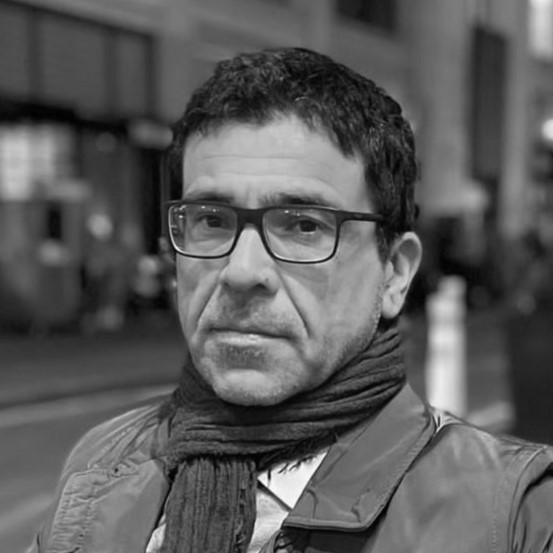
“Being able to live well within natural limits is the great challenge of our century and it requires a change in development model. We must adopt a habit of production and conservation, leaving behind dissipation and waste. We must overcome our technological boundaries to be able to live within the limits of available resources, having a clear sense of responsibility for our actions on changes in nature and of the fundamental importance and centrality of natural resources for humanity.” So says Catia Bastioli, CEO of Novamont and a beacon of the Italian bioeconomy. As part of her role as a director of the Fondazione Cariplo with responsibility for scientific research Bastioli, from the Italian region of Umbria, also helps promote development of the bio-economy and circular economy and the creation of new “green” jobs.
Investing in research and innovation is the recipe for ending the crisis, according almost unanimously to economists. How important is it, from your point of view, to invest in scientific research today to ensure the development of the bioeconomy in the coming decades?
“Being able to live well within natural limits is the great challenge of our century and it requires a change in development model. We must adopt a habit of production and conservation, leaving behind dissipation and waste. We must overcome our technological boundaries to be able to live within the limits of available resources, having a clear sense of responsibility for our actions on changes in nature and of the fundamental importance and centrality of natural resources for humanity. Knowledge and technologies, if at the service of a shared project of development, can make a difference.
“We need to think of the bioeconomy in terms of a circular economy and integrated, interrelated and interdisciplinary supply chains, where the land, its quality and biodiversity and the efficient use of resources – while always respecting human dignity – become the centre of a cultural regeneration as well as an industrial, environmental and social one. This type of culture is formed on the field, sharing local projects where the fact of constructing and learning together builds trust and respect, as well as wealth for many, without waste.
“Research allows you to create knowledge and develop new widespread entrepreneurship, new models of interaction between industry, agriculture and the environment. Training combined with increased scientific research also makes it possible to overcome ingrained habits and to understand that each of us can contribute effectively to the challenge, creating new job opportunities while respecting the environment and local traditions.”
During a period of dramatic cuts in spending on research in Italy, private entities such as bank foundations play an essential role. As an adviser for the Fondazione Cariplo (Italy’s largest banking foundation) with responsibility for scientific research, can you tell us about the main initiatives to support research in the field of bioeconomy and circular economy?
“Over the years Fondazione Cariplo has developed a virtuous system of tenders and project selection using the same system of evaluation as that of the European Union, and this allows the best proposals to be rewarded. It is also trying to promote the widespread patent culture with initiatives that enable the Fondazione to follow the different projects as they evolve. Moreover, because the Fondazione is very familiar with the territory in which it operates, each project has a significant systemic effect, as well as being a model and stimulus for other areas. In the field of bioeconomy Ager was a significant project: an initiative to develop knowledge in the food chain, promoting the study of related technologies and the transformation of waste into resources. The project involved as many as 18 foundations and territories.
“Following the success of Ager we decided to continue, allocating 1.5 million euro to support research projects in the aquaculture sector, with the aim of limiting production costs, reducing the environmental impact of farming and improving the quality of the finished product. Two point five million euro, then, went on projects in the olive oil sector for the improvement of production systems and extra virgin olive oil and the reuse of by-products. In addition, together with the French foundation Agropolis, we brought forward a number of projects carried out in collaboration with scientists from Italy and France and developing countries, involving rice and cereals as part of the integrated supply chain. And, finally, a number of projects to support young researchers or school-work initiatives, and for university researchers to enable them to compete at European level for grants from the European Research Council. These initiatives, often co-financed by the Lombardy Region, are particularly relevant.”

Research aside, what initiatives of the Fondazione Cariplo support or intend to support the bioeconomy and circular economy in the future?
“Interaction between the Fondazione’s Environment sector and that of Scientific Research will become increasingly important in the field of bioeconomy. This is because the bioeconomy is interdisciplinary and interconnected and it needs site-specific projects where research is at the service of an increasingly efficient use of resources, while at the same time protecting biodiversity and ecosystems.”
The Environment tender on resilient communities assigned priority to projects that increased employment opportunities in the green jobs sector. Are there any other initiatives of the Fondazione aimed at creating “green” jobs?
“As part of the collaboration between Environment area and Research area a new tender on green jobs is coming out which aims to raise awareness of young people about the opportunities offered by green jobs, improve training opportunities in line with the skills required by the green economy and facilitate the matching of supply and demand. It is an initiative on which you can build by working with other foundations and parts of the country. Decisive interaction with companies particularly interested in the topic will be possible, creating training projects dealing with aspects specific to green jobs. In this case a public-private partnership expanded to the maximum could generate employment and entrepreneurial work on a considerable scale. We are working hard on this.”
Technology transfer is a topic linked to scientific research and the creation of new job opportunities. What needs to be done in Italy to improve the relationship between the academic world and industry? What role could a foundation such as Fondazione Cariplo play in this?
“As a lever for growth and employment it is necessary to help create an ecosystem based on innovation that derives an advantage ‘from the intersection of knowledge’ between traditional enterprises (SMEs and large companies), social enterprises, cultural enterprises, schools, training institutions, informal education environments (museums, FabLabs), incubators/accelerators, universities, research centres and technology clusters etc.
“The green jobs project, for example, connects academia and industry through practical projects and this is the best way to grow together and create solid bridges based on real needs. Equally important are formally established platforms to liaise between technical schools and companies looking for graduates with technical and soft skills, as well as other local institutions such as universities and associations. The purpose is to facilitate entry into the jobs market of school-leavers with technical skills.
“Fondazione Cariplo has pledged €1million to the best examples of school-work alternation and soft skill training planned by the Lombardy platform. The Lombardy Region, also involved in the contract, has provided €2million from the fund for young people to companies affiliated with the platform who take on the high school graduates at the end of their training.
“More generally, the Fondazione can help validate a new model of innovation, unlike the traditional triple helix model based on the (often poor) interaction between public, private and academic sectors, where the third sector and civil society act as catalysts to engage the various stakeholders in research and innovation that will result in social innovation.”
The interest of a grant making foundation does not end with the selection and approval of projects. How are the results of the funded initiatives monitored and nurtured?
“This latter point is crucial for Fondazione Cariplo, considering the principle of public utility that lies at the basis of its activities. To do this, the Fondazione adopted a policy of open access some time ago to promote the dissemination of knowledge and the democratic use of the results of the funded research. There is also a policy on intellectual property protection which aims to encourage the economic value of innovation in respect for human rights and fundamental freedoms and obliges the recipients of grants who have been awarded a patent/licence for a project funded by Fondazione Cariplo to re-invest the proceeds – possibly generated by its application – on further research and development.”
In conclusion, a reference to today’s situation: how do you feel about the resolution approved by the European Parliament last July on the circular economy? What – if anything – needs improving in your opinion?
“The resolution is a positive sign because it shows how today’s Europe is in agreement over the need for a model that focuses on the efficient use of resources. What is still lacking, and which I hope will find space in a new and more ambitious European initiative, is a definition of the bioeconomy expressed through the concept of sustainable regions, one based on regional regeneration and the integrated supply chain, able to create new models of production and consumption. A bioeconomy that starts from marginal land, fallow and poor in fertility, from crops exploitable from every point of view, from industrial sites that are no longer competitive, redeveloping areas while respecting their specificities and their biodiversity and even linking up with the more traditional economy through new prospects for innovation. The point, in short, is to really impact on the greatest weaknesses of the EU turning them into engines of this new development, within the limits of natural resources.”
Ager project – Agribusiness and research, progettoager.it.
Info



